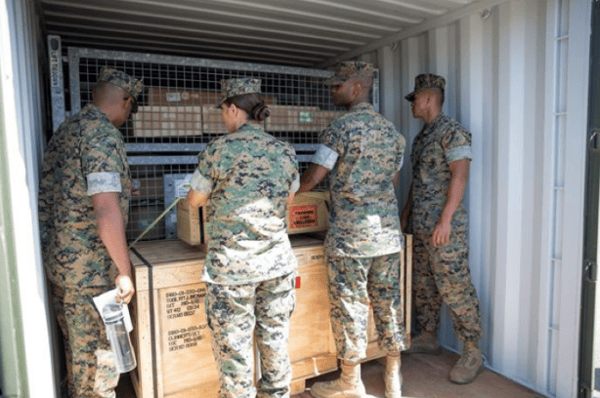
A government contract can be a windfall for nearly any manufacturer. That’s especially true if it’s a contract for military parts or supplies. These types of contracts usually lead to consistent, high-volume work and regular, predictable cash flow, two things that can help your business grow.
Government contracts can also be complicated, though. There’s no wiggle room or margin for error when it comes to government standards and expectations. You either comply with the standards or you don’t. If you’re not in compliance, you risk losing the contract and not even receiving payment for your work.
For many manufacturers, one of the toughest standards with which to comply is Mil-Std-2073 , which explains the military’s standards and expectations for vendor packaging. As you may know from experience Mil-Std-2073 is detailed, specific, and difficult to navigate. It’s easy to miss one packaging component or to package in a slightly different method than described.
Unfortunately, non-compliance with Mil-Std-2073 could create big problems for you and your military contract. It could delay payment, add additional cost to return and correct, and even lead to the cancellation of the business. The good news is you can stay in compliance with Mil-Std-2073 by understanding the guidelines and developing a strategy and process.
Why is Mil-Std-2073 so important?
Mil-Std-2073 only covers packaging, so why is it so important to your government business? Surely the quality of your product is more important than how it is packaged, right?
Not quite. The military places a priority on consistency and uniformity. They don’t want surprises in product quality or packaging methodology. If you don’t follow Mil-Std-2073 to the letter, your shipment could get delayed or sent back to your facility. The government likely won’t pay your invoice until the product is accepted or approved, so a violation of the Mil-Std-2073 could means a cash flow delay for you.
Unfortunately, it’s easy to make a misstep on the government’s packaging standards. The guidelines cover everything from the type of preservation and materials to be utilized to testing and inspections to be performed, and much more. The standards even describes the quality system and procedures for compliance with containers.
How to comply with Mil-Std-2073
Given the importance of your government contracts, and how important Mil-Std-2073 is to maintaining that contract, it’s critical that you have a process in place to comply with the packaging standards.
Perhaps the best way to stay in compliance with 2073 is to partner with a company that has extensive military packaging experience. For example, here at Deufol, we have more than 40 years of experience meeting all aspects of Mil-Std-2073 regulations, from standard packaging to preservation and much more.
When you work with an experienced partner, you benefit in a few ways. One is that you simply leverage their experience and understanding of the guidelines. Your partner knows what the standards mean and how to comply with them. They know which mistakes to avoid, and how to get your products shipped, delivered, and accepted quickly.
Another benefit of working with an experienced military packager is that they have all the necessary materials in stock. Standard 2073 is very specific about the types of materials that can and cannot be used. At Deufol, we keep those materials in stock so we can quickly package government products. If you package yourself or work with an inexperienced government packager, they may have to special order those materials, creating unnecessary delays.
Finally, an experienced government packager should have the back-office capabilities to navigate and resolve any issues that arise. Sometimes the government or military purchaser will have questions about the packaging methodology or the materials used. If you can’t provide a fast answer, your shipment and payment could be delayed. Your packaging partner should be able to resolve those questions to keep the project moving.
A government contract could be a boon for your business, but only if you can meet the tough standards. Work with an experienced partner who can help you stay in compliance and maximize the opportunity. ![]()





Let Us Know What You Thought about this Post.
Put your Comment Below.